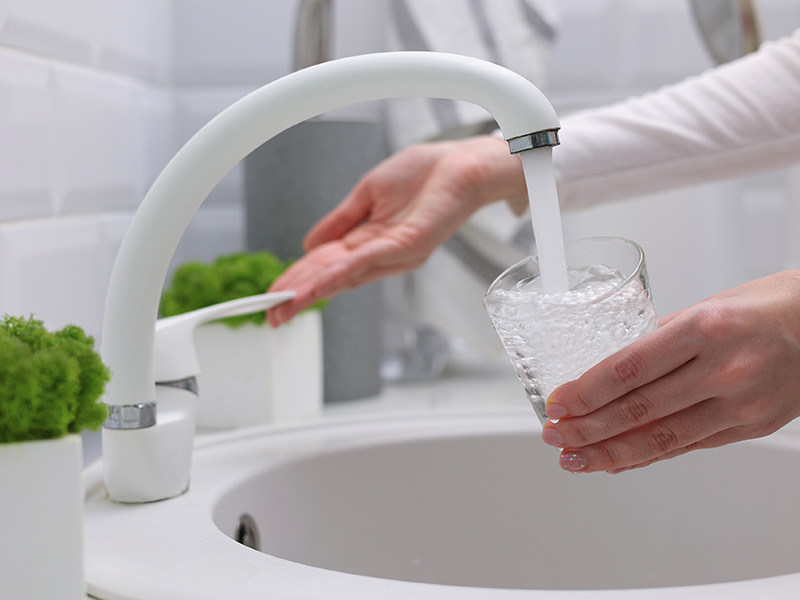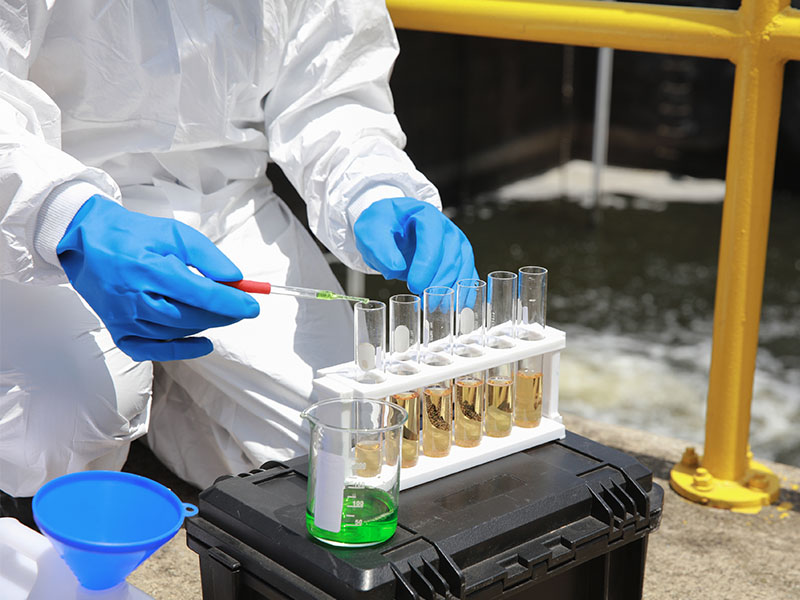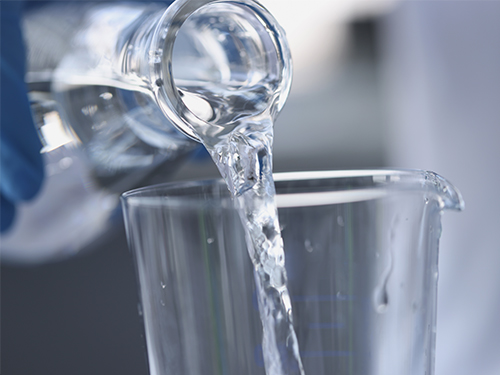When anyone turns on the tap of their homes, they expect clean, safe water. But if your water comes from a private well, ensuring its safety is solely your responsibility. Without regular testing and treatment though, well water can become a breeding ground for hard minerals, bacteria, and other contaminants. In this article, we’ll get you familiar with the hidden risks of unchecked well water, the importance of professional testing, and actionable steps you can take to protect your water supply.
Understanding Well Water Risks
Hard Water: More Than Just a Nuisance
For homeowners who rely on well water, hard water is a common and often frustrating issue. Caused by elevated levels of calcium and magnesium, hard water may not pose a direct health risk, but it can create a number of challenges throughout your home.
Over time, these minerals can build up inside your plumbing, restricting water flow and increasing the likelihood of clogs or pipe damage. This not only affects daily water use but can also lead to expensive plumbing repairs. Hard water also takes a toll on appliances. Water heaters, washing machines, and dishwashers tend to wear out faster when constantly exposed to mineral-rich water, cutting their lifespan short and reducing efficiency.
Even simple tasks like cleaning become more difficult. Hard water makes soap and detergents less effective, meaning you’ll need to use more to get the same results. Laundry might feel stiff or dingy, and dishes can come out spotted or not fully clean.
Bacterial Contamination: A Serious Health Threat
While hard water is mostly a nuisance, bacterial contamination in well water is a serious health concern. Harmful microbes such as E. coli and coliform bacteria can make their way into your water supply through surface runoff, poor well construction, or nearby septic systems—posing real risks to you and your family.
Contaminated water can also lead to a range of health issues, from mild gastrointestinal discomfort to severe infections, particularly in children, the elderly, and those with weakened immune systems. In some cases, prolonged exposure to contaminated water can even result in long-term health complications.
Other Common Contaminants
Unchecked well water can also harbor a variety of other contaminants, including:
- Nitrates: Often from fertilizers or septic leakage, nitrates can cause serious health problems, particularly for infants.
- Heavy Metals: Arsenic, lead, and iron can be naturally occurring or due to industrial pollution.
- Pesticides and Herbicides: Agricultural runoff can introduce harmful chemicals into your well water.
Signs You Might Have a Well Water Problem
Even without professional testing, there are warning signs that your well water may need attention:
- Stains on sinks, tubs, or laundry
- Rotten egg smell (indicative of sulfur bacteria)
- Unusual taste
- Cloudy or discolored water
- Frequent gastrointestinal issues among household members
Don’t ignore these symptoms. Contact a professional immediately for a comprehensive evaluation.
Practical Tips for Well Water Safety
Regular Testing
Experts recommend testing your well water at least once a year for bacteria, nitrates, and any contaminants of local concern. After heavy rainfalls, floods, or changes in taste, odor, or appearance, immediate testing is advised.
Proper Well Maintenance
Start by checking the well cap regularly. It should be securely in place and free from cracks or damage that could allow contaminants to enter. It’s also important to keep detailed records—track every test result, maintenance visit, and repair. These records can be incredibly useful for spotting patterns or catching problems early.
In addition to your own checks, schedule professional inspections every few years. A licensed well contractor has the tools and expertise to assess the system thoroughly and catch any issues that might not be visible to the untrained eye.
Install Appropriate Filtration Systems
A reliable filtration system is key to making well water safe for use. From sediment filters to reverse osmosis units and UV purifiers, the right setup can target specific contaminants like bacteria, heavy metals, and hard minerals.
Why Choose Innovative Water Solutions Laboratories?
At Innovative Water Solutions Laboratories, we bring expertise, precision, and commitment to every water treatment project. Here’s why homeowners trust us:
- Certified Laboratory Testing: Our advanced lab facilities ensure accurate detection of a wide range of contaminants.
- Customized Treatment Plans: We don’t believe in one-size-fits-all solutions. We customize our systems to your unique water profile.
- Top-Quality Products: We use only industry-leading equipment that delivers reliable, long-term performance.
- Exceptional Customer Service: Our knowledgeable team is always ready to guide you through the process, answer questions, and provide ongoing support.
Protect Your Family!
Unchecked well water can pose serious risks as hard water damages plumbing and appliances, bacterial contamination threatens your well-being, and hidden pollutants can have long-term health effects. Ready to protect your home and health? Innovative Water Solutions Laboratories is your trusted partner in water testing, treatment, and long-term protection. Contact us today for a comprehensive well water analysis and personalized treatment plan.





